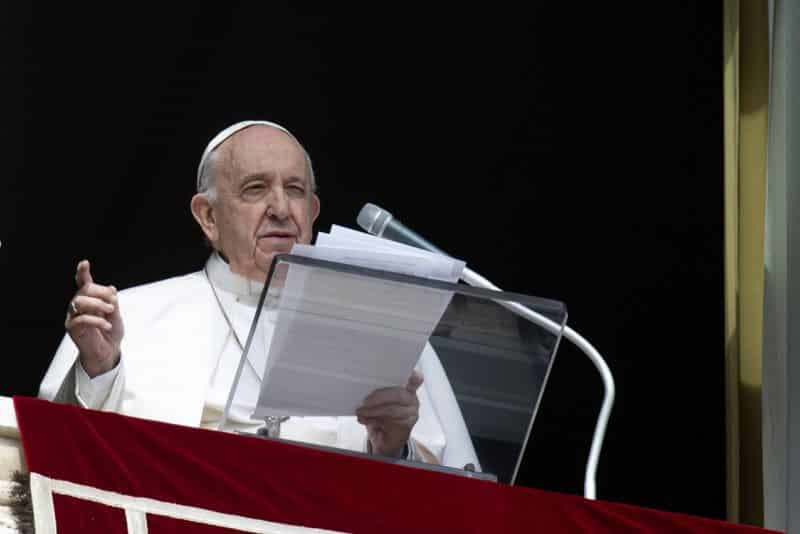VATICAN CITY (CNS) – Saying he wanted to promote a “healthy decentralisation” of some aspects of Church life, Pope Francis made several changes to Church law, granting greater authority to individual bishops, bishops’ conferences and synods of bishops of the Eastern Catholic churches.
The changes, the Pope said, should “foster a sense of collegiality and the pastoral responsibility” of bishops and religious superiors who are closest to the matters being decided, and therefore have a better understanding of what is appropriate.
Pope Francis’ amendments to both the Code of Canon Law of the Latin-rite church and the Code of Canons of the Eastern Churches were published by the Vatican on February 15, the day they were to go into effect.
The modifications, the Pope said, “reflect even more the shared and plural universality of the Church”, which includes many legitimate differences, but preserves its unity in communion with the Pope.
At the same time, he wrote, the changes “encourage a more rapid efficacy of the pastoral action of governance by the local authority, which is facilitated by its very proximity to the persons and situations which require it”.
For setting up an interdiocesan seminary, drafting a programme for the formation of priests or publishing a national catechism, with the new law the bishop or bishops’ conferences involved simply need to obtain a “confirmation” from the Vatican, and are no longer required to seek the “approval” of the Vatican.
In Church law, “‘approval’, as opposed to ‘confirmation’, entails a greater commitment and involvement” of the Roman Curia. “Therefore, it is evident that the shift from requiring ‘approval’ to requiring ‘confirmation’ is not only a terminological change, but a substantial one, which moves precisely in the direction of decentralisation,” Bishop Marco Mellino, a member of the Pontifical Council for Legislative Texts, told Vatican News on February 15.
In another change, Pope Francis gave local bishops the authority to determine when there is “a just and necessary cause” for reducing the number of Masses to be said in fulfilment of a will or legacy left to the Church. Previously such a decision was reserved to the Vatican.
Bishop Mellino told Vatican News that the law still insists that donations left to the Church be used for the donor’s intentions, but recognises that over time, especially if the money was left decades ago, adjustments may be necessary.
Pope Francis also added a new paragraph to the canon dealing with consecrated virgins to make clear that a bishop may establish an association for consecrated virgins in his diocese and a bishops’ conference may do the same on the national level.
In addition, he gave religious superiors, when acting in consultation with their councils, broader authority for authorising long absences from the community or for dismissing or accepting a request of a member with temporary vows to leave the community permanently.
As part of ongoing measures to reform the Roman Curia, Pope Francis has also approved restructuring the Congregation for the Doctrine of the Faith.
Once comprised of a doctrinal office, a discipline office and a marriage office, the new structure will see the doctrinal and discipline offices become their own special sections led by their own secretaries; the marriage office will become part of the doctrinal office.
The two secretaries will serve under the congregation’s prefect.
In “Fidem servare” (Preserving the Faith), published “motu proprio,” (on his own initiative) on February 14, Pope Francis said the main task of the congregation has been to safeguard or “keep the faith”. The changes went into effect the same day.
The doctrinal section will be responsible for matters concerning “the promotion and safeguarding of the doctrine of the faith and morals”.
Its aim, the Pope wrote, is to promote studies aimed at fostering “the knowledge and transmission of the faith in the service of evangelisation, so that its light may be the criterion for understanding the meaning of existence, especially before questions posed by the progress of science and the development of society”.
When dealing with faith and morals, the doctrinal section will examine documents to be published by other dicasteries of the Roman Curia, “as well as writings and opinions that appear problematic for the correct faith, encouraging dialogue with their authors and proposing suitable remedies”, according to previously established norms.
The section will also study any questions arising from personal ordinariates for Anglicans entering into full communion with the Catholic Church through the Apostolic Constitution, “Anglicanorum Coetibus.”
The doctrinal section will absorb the duties covered by the congregation’s marriage office, which deals with questions involving the validity of marriages when one of the spouses is not a baptised Christian.
The discipline section, through the currently existing discipline office, will handle those offenses and crimes reserved to the congregation – particularly clerical sexual abuse cases – and its supreme tribunal. It will prepare and elaborate procedures in accordance with canon law so as to “promote a correct administration of justice”.
To that end, the discipline section will promote needed formation initiatives that the congregation can offer to bishops, dioceses and canon lawyers “to promote a correct understanding and application of canonical norms”.
Photo: Pope Francis gives his Sunday Angelus address at St Peter’s Square on February 13 (CNS Photo)

Reader Interactions